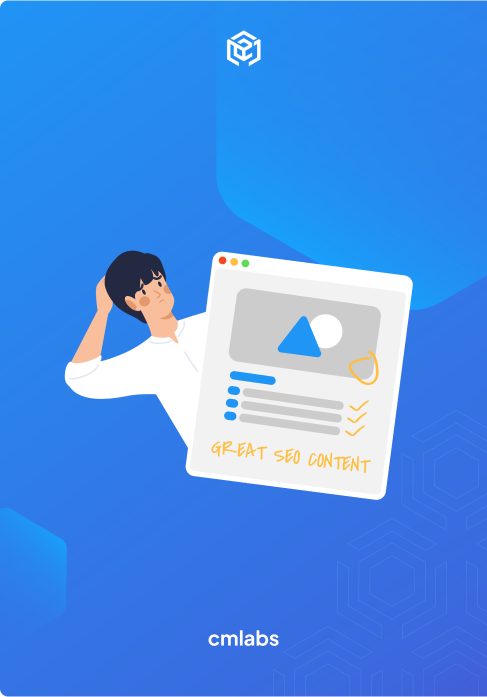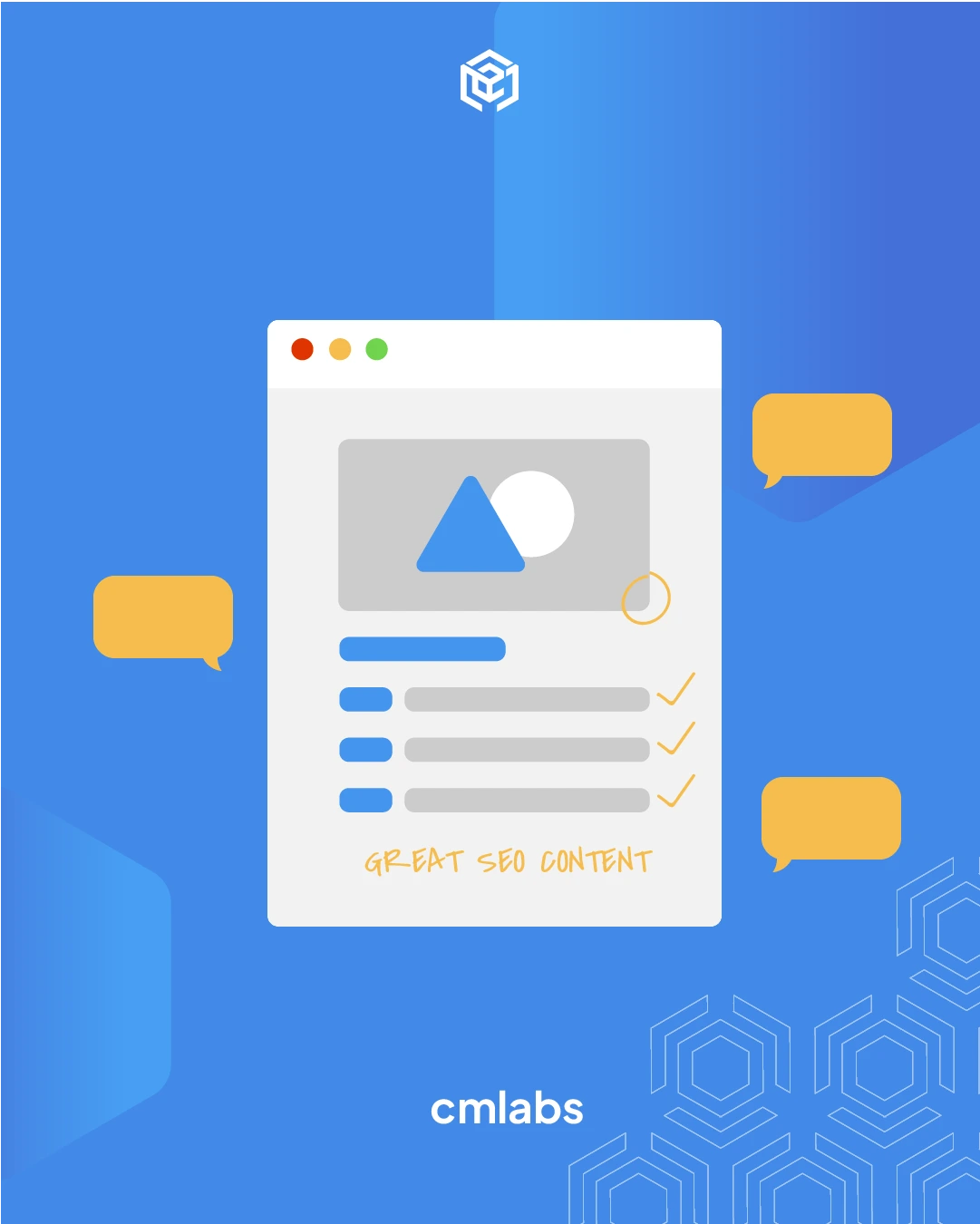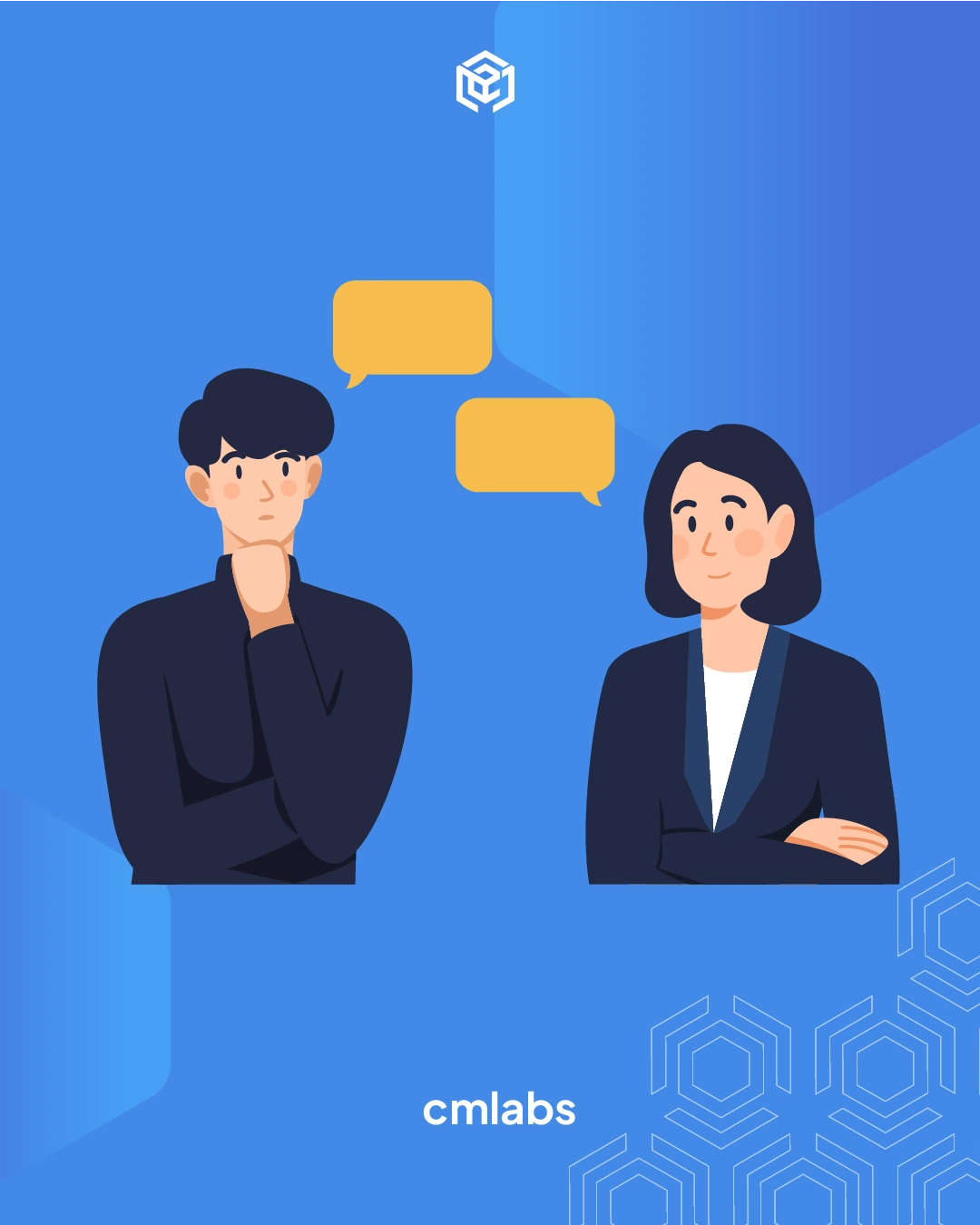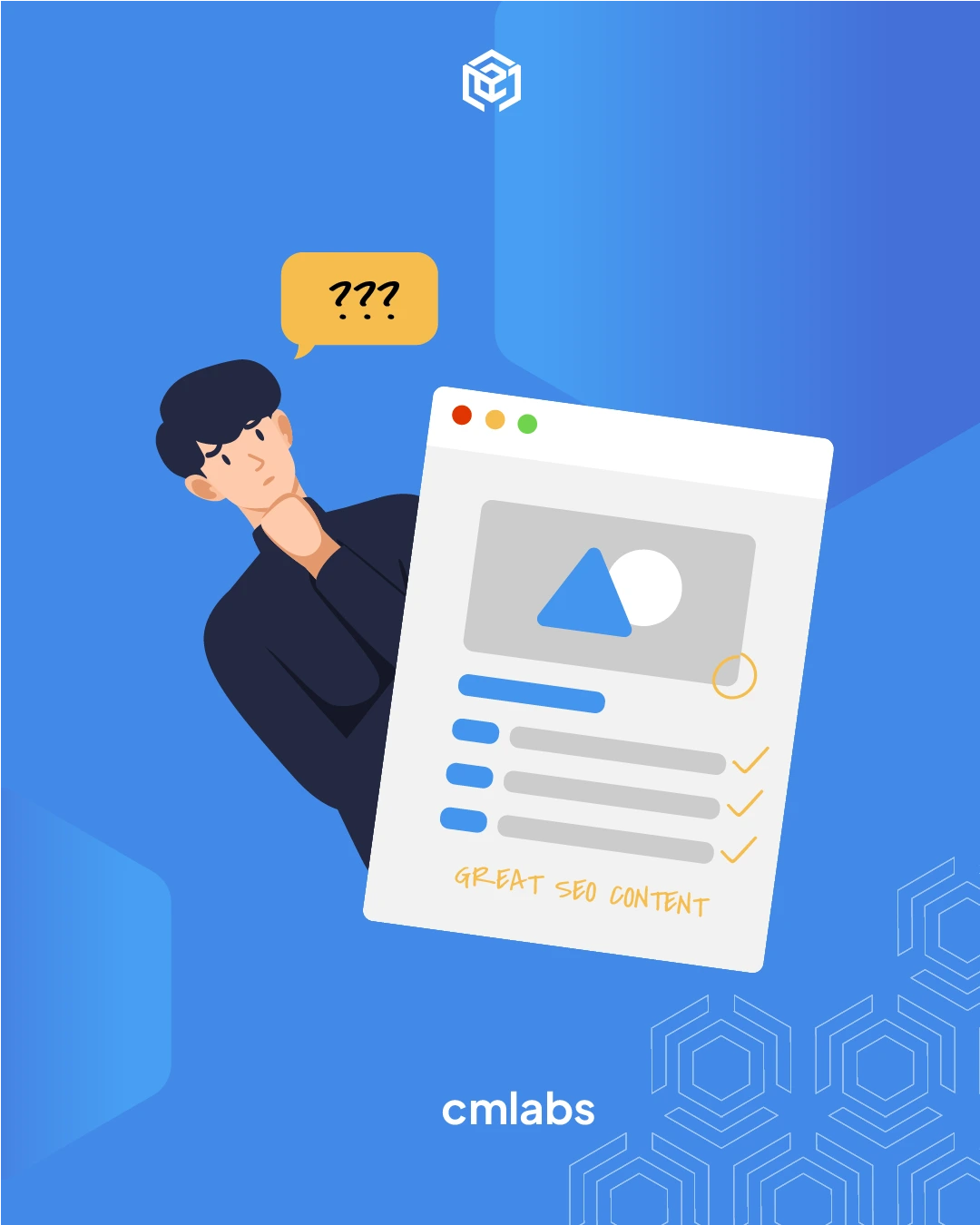We use cookies
This site uses cookies from cmlabs to deliver and enhance the quality of its services and to analyze traffic..
SEO SERVICES
Conduct in-depth technical website audits, strategically develop website projections, and increase your website authority.
ASO SERVICES
Elevate Your App’s Presence with Our Expert ASO Services – Boost Visibility and Drive Downloads!
WRITING SERVICES
We offer a variety of writing services to suit different business necessities. Reach broader audiences or lead specific industries? We've got you covered!
SEOlutions
A unified source of truth!
SEO & Digital Maternity Solution
SEO & Digital Maternity Solution: Leverage Cross-Platform Insights to Elevate Your Strategy with Expert Consultation
SEO & Digital Maternity Solution
Data Solution options:
Starting from Rp200 mio
Reinventing how a company get creative treatments
A new way to get your creative needs done. Agile team, efficient cost, and expedient way in a flexible yet scalable subscription plan!
Creative-as-a-Services
CaaS package options:
Based on Subscription
Pioneer in digital marketing software powerhouse
We’re excited to unveil our new range of Tech Solutions designed to drive your digital success. Whether you’re looking to enhance your website’s performance, streamline your tech stack, or unlock deeper insights from your data, we’ve got you covered.
Starting from Rp250 mio
Our Clients
Research and innovation center for digital transformation
Digital marketing combines technical skills and business knowledge at every stage. For marketing teams, improving budget management efficiency is crucial, as time is an invaluable resource that should be used wisely. At Sequence, we are dedicated to empowering you to optimize efficiency and strategic planning, ultimately enhancing the impact of your digital marketing efforts.
Subscription-based (IDR1,800/keyword)
Our Clients
BeyondSEO
References
SEO Tools for Webmasters
SEO Tools for Writers
SEO Tools
FIND THE SUITABLE PARTNERSHIP FOR YOUR COMPANY
Check out which cmlabs partnership program suits your company
WHITE LABEL SEO
for CorporateYour company is granted exclusive partnership rights to provide SEO services to our important clients, and we will provide a dedicated backend team to support your efforts.
AFFILIATE PROGRAM
for BizdevA new affiliate program is being introduced for skilled marketers and individuals with strong networks, offering commissions of up to 7% for generating profits independently.
DIGITAL AGENCY
for Marketing Partnerscmlabs is an essential partner for digital agencies, providing a unique selling proposition in Search Engine Optimization (SEO).
BACKLINK PARTNERSHIP
for Media / BloggerWe have a vast database of bloggers and media outlets across Indonesia, categorized by region and media type, giving our clients an edge in managing their media and SEO activities.
OFFICIAL TRAINING
We provide ongoing professional development and support to SEO professionals to ensure they are equipped to meet market demands.
JOIN AS CONTRIBUTOR
for Content WriterGreat opportunity for SEO Writers around the world. T&C applied!
ACADEMIC PARTNERSHIP
Through partnerships with universities in Indonesia, cmlabs has helped align academic curricula with industry demands.
Partnership
Sector & Industries
Tell us your SEO needs, our marketing team will help you find the best solution
As an alternative, you can schedule a conference call with our team
Schedule a Meeting?Contact
Survey
We use cookies
This site uses cookies from cmlabs to deliver and enhance the quality of its services and to analyze traffic..
Last updated: Aug 03, 2022
When it comes to SEO practices, every element on a website matters. A website's canonical URL is one of many important elements that affect the quality of its performance. The SEO optimization process can be made more effective by using Canonical URLs. Hence, Google can assess and see the quality improvement of a website.
The use of a canonical page is intended to make sure that the technical SEO of a website works accordingly and effectively or not. To do so, you need to inspect such an element before proceeding to continue to create content for your blog or website.
If your website gets bigger each day, consider using canonical URLs to manage it. By doing so, you can organize your content more neatly and avoid the case of duplicate content happening. Such a case often happens when there are a few pages discussing branches of certain topics.
In that case, a similar URL can affect Google's assessment of the website negatively and reduce its performance. If there are two or more similar URLs on a website, Google will find it hard to differentiate the main content from its variants.
Technically, a canonical URL is a snippet of an HTML code used to determine the main page out of all the variants that have similar URLs. Using this technique, you can suggest to Google that the intended page containing the main topic be indexed on SERP.
Since the issue of duplicate content can reduce the quality of a website's SERP, Therefore, it is important to put the label rel = canonical so that Google can detect the URL of the main page that must be indexed first.
Here are some examples regarding the duplicate content issue that can be detected by Google:
In order to get the URL of the main page indexed by Google on the SERP, you must add the canonical tag on one of the intended pages first. By doing so, you can assist Google in doing the crawling process efficiently.
To avoid the duplicate content issue, you need to add the canonical tag to a page that contains the main content of a certain topic on your website. By doing so, you can reduce the excessive load of crawling and ensure the URL of the main page gets indexed by Google effectively.
With the existence of a canonical page, the process of tracking metrics of certain topics on a website gets easier. By applying such a tag, managing a website can be done more efficiently and neatly.
Another thing to note is that a canonical page can help combine the link signals that connect every piece of content with a similar topic on a website. By applying this method, Google can unify all such content into one selected URL.
In order to get the best assessment by Google, you can apply the use of a canonical label on some of the main pages on your website from now on. Here are several methods you can use:
To assign a canonical tag on a certain page, you can use rel=”canonical” on its HTTP header. By doing so, Google can detect the URL and confirm it as the main page. Afterward, Google will start the indexing process accordingly.
To get the main page detected by Google, you can add the tag rel=”canonical” on every URL of other pages that discuss a similar topic. In order to do that, you can mark the head of the HTML with the tag. Here are the steps to apply it:
In this case, you must know that Google prioritizes pages that use HTTPS as the canonical page of a website. To get the best result, you can proceed with the transition from HTTP to HTTPS if you have not done it yet.
To get the most effective result, you can attach the main or canonical page to the sitemap of your website. It is advised to attach the URL of the main pages only so that Google can detect the duplicate pages that do not necessarily need to be included in the crawling process. In order to check the sitemap of your website, you can use the Sitemap Generator from cmlabs for free.
WDYT, you like my article?
Couldn't find result for "Mulki" try to search with different keyword
Suggestion:
Tell us your SEO needs, our marketing team will help you find the best solution
As an alternative, you can schedule a conference call with our team
Schedule a Meeting?



cmlabs Jakarta Jl. Pluit Kencana Raya No.63, Pluit, Penjaringan, Jakarta Utara, DKI Jakarta, 14450, Indonesia
(+62) 21-666-04470These strategic alliances allow us to offer our clients a wider range of SEO innovative solutions and exceptional service.

Psst! Hey there, SEO Stats and Tools SEO company! If you've ever planned of conquering the Singapore market, you've come to the right place!